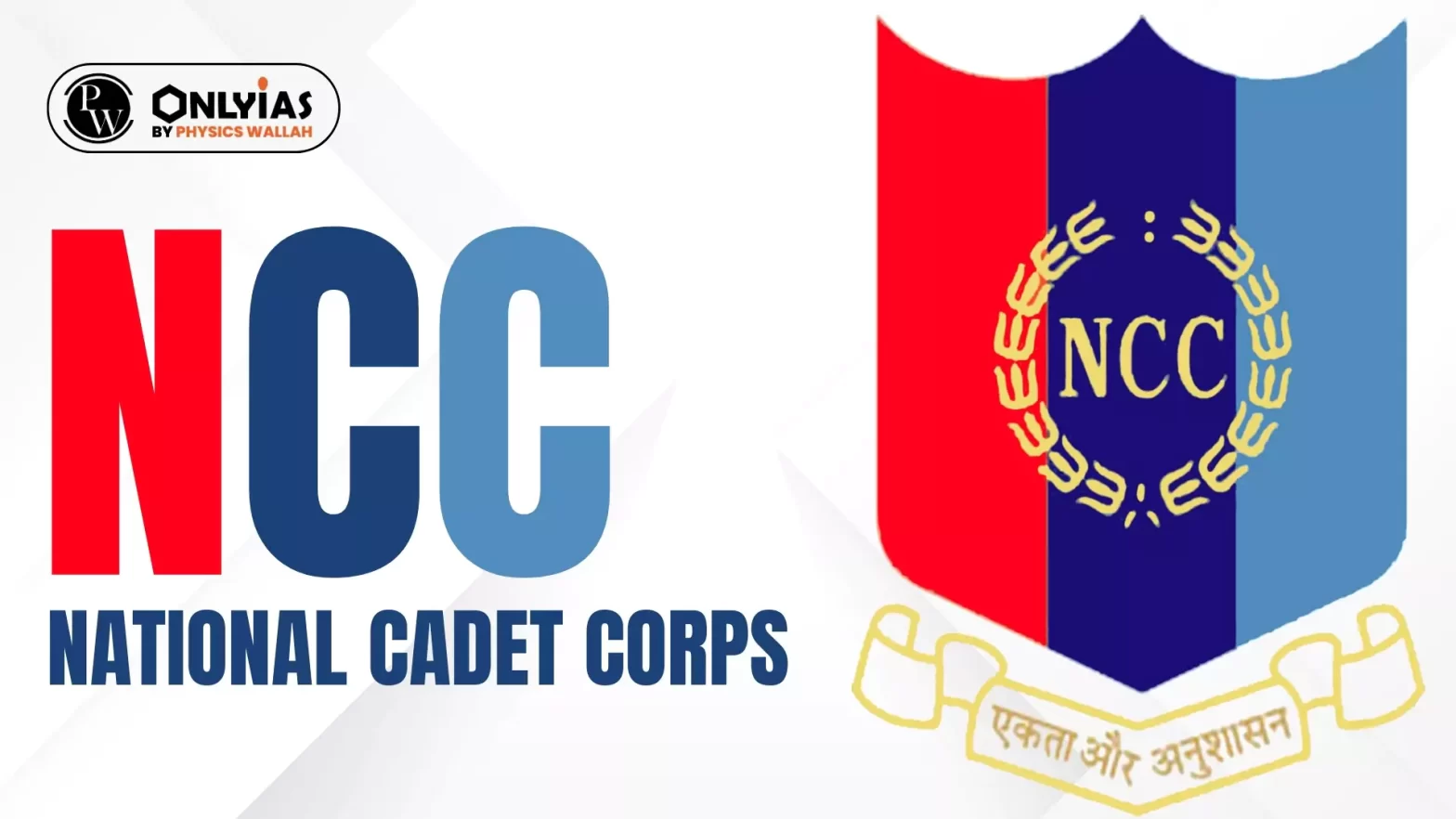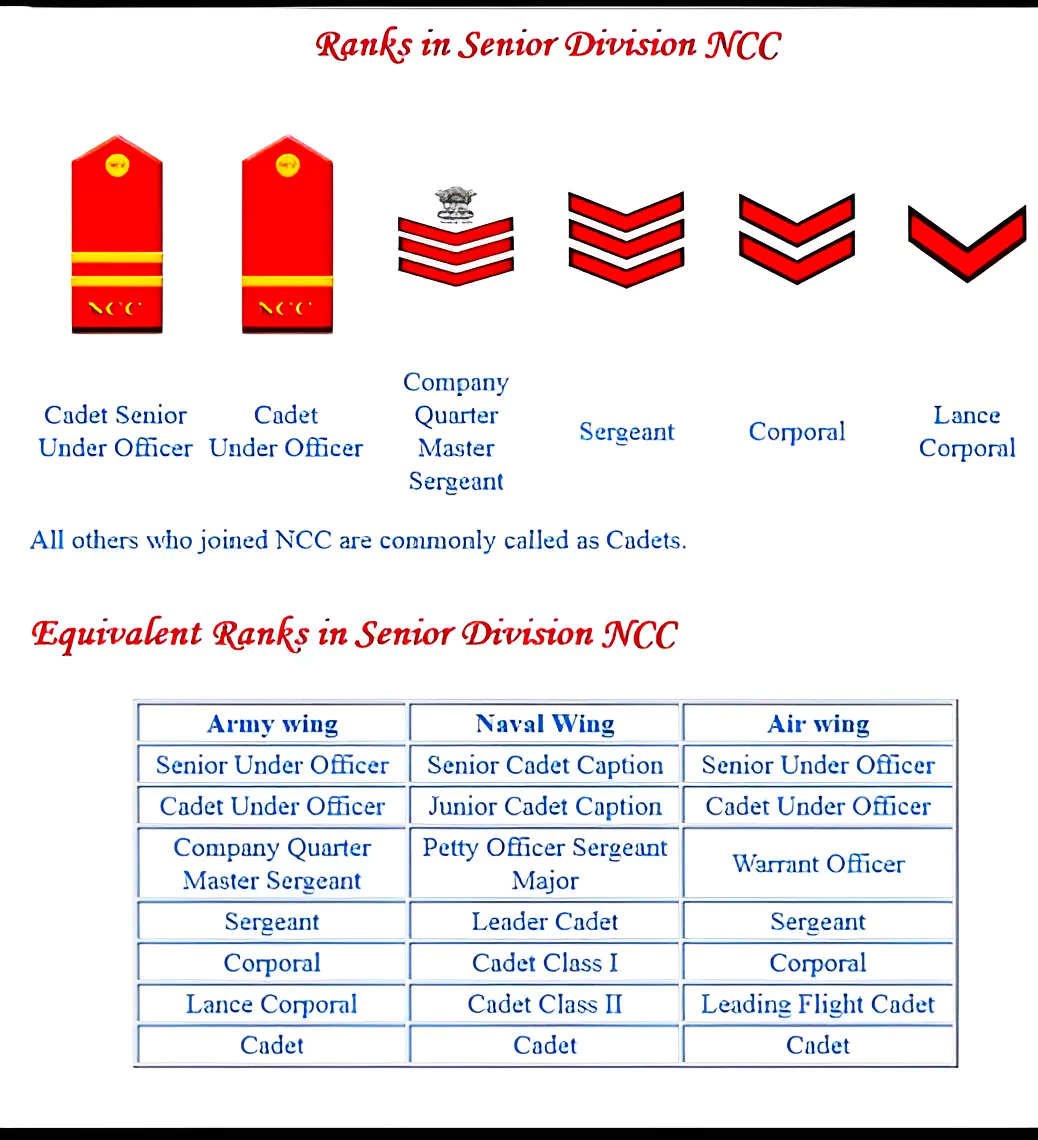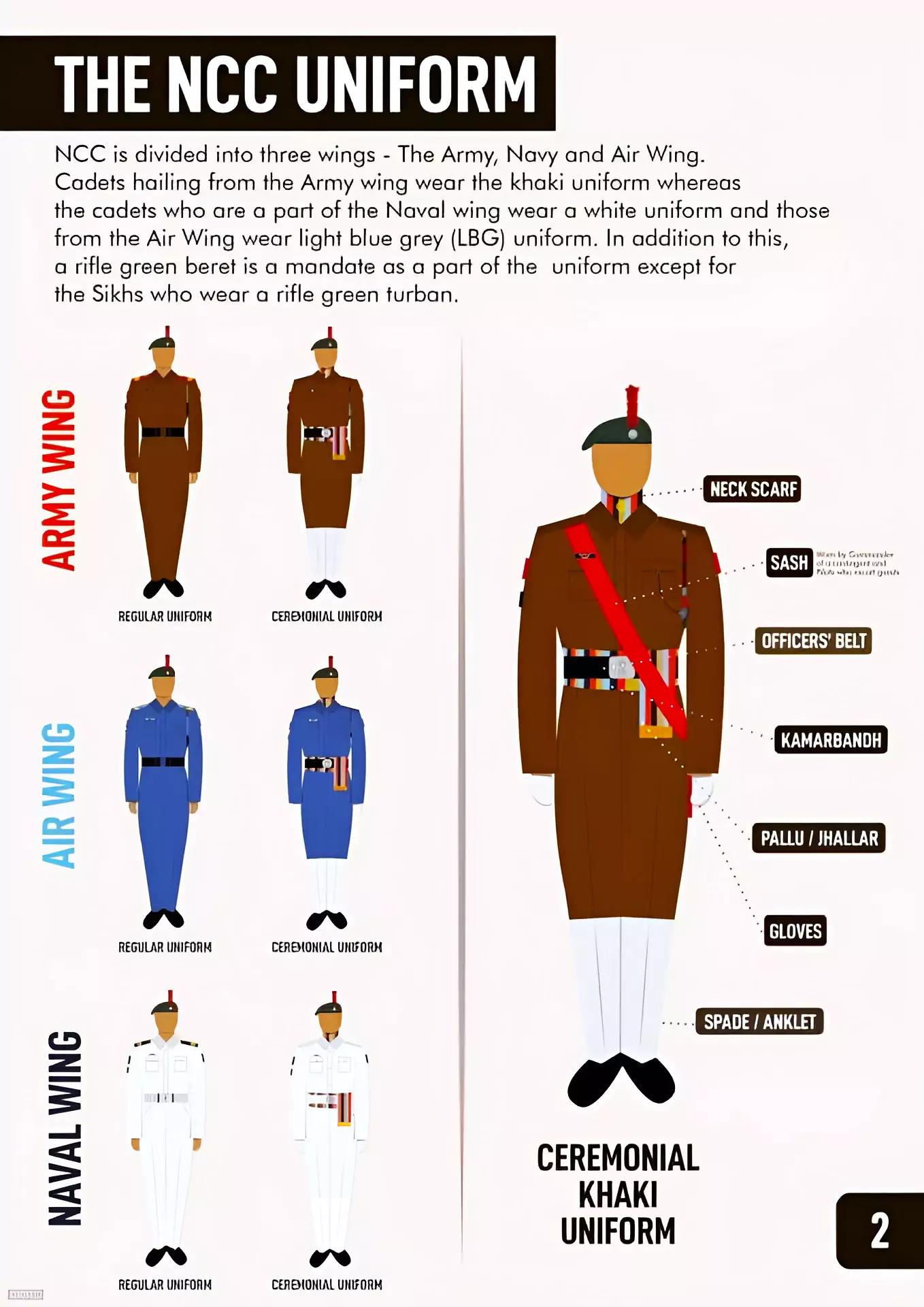NCC Full form is National Cadet Corps and is the designated youth wing of the Indian Armed Forces. It is open to school and college students.

Recently, the Prime Minister of India interacted with the volunteers of NCC and NSS, who had gathered in New Delhi to participate in Republic Day celebrations.
NCC Full form is National Cadet Corps and is the designated youth wing of the Indian Armed Forces. It is open to school and college students.


The goal of NCC is not just to provide military training to youths of the country but to develop the character of youth through all-round development. NCC creates a steady bunch of individuals who are ready to serve the society.
| Must Read | |
| NCERT Notes For UPSC | UPSC Daily Current Affairs |
| UPSC Blogs | UPSC Daily Editorials |
| Daily Current Affairs Quiz | Daily Main Answer Writing |
| UPSC Mains Previous Year Papers | UPSC Test Series 2024 |
National Cadet Corps is the designated youth wing of the Indian Armed Forces. It is a voluntary organisation that is open to school and college students.
"Unity and Discipline" is the motto for the National Cadets Corps.
To develop the physical, intellectual, and moral dimensions of society.
Cadet Under Senior Officer, Cadet Under Officer, Company Quartermaster Sergeant, Sergeant, Corporal, and Lance Corporal are all NCC Senior Division Ranks.
Senior Division: The total training period for SD and SW is 3 years with an extension of 1 year permissible. Junior Division: The training period for JD & JW is 2 years.
Certificate A: JD/JW cadets of the National Cadet Corps can take this examination during class years 8, 9, and 10. After passing these classes it can't be obtained. Certificate B: The cadets of SD/SW cadets can take this examination after class year 10 and those studying for a degree. Certificate C: Being the highest certificate, it can be taken in the third year of training, in the third year of a degree course.
<div class="new-fform">
</div>